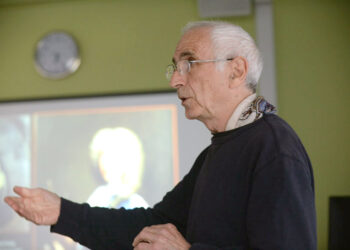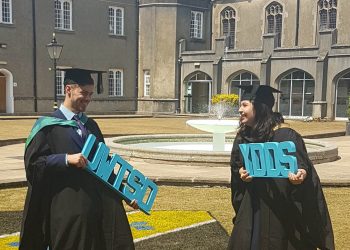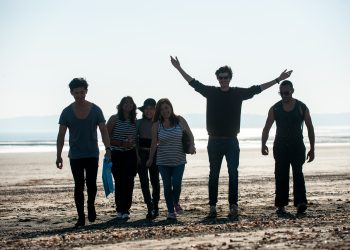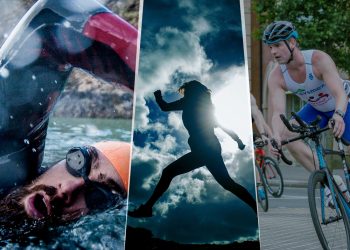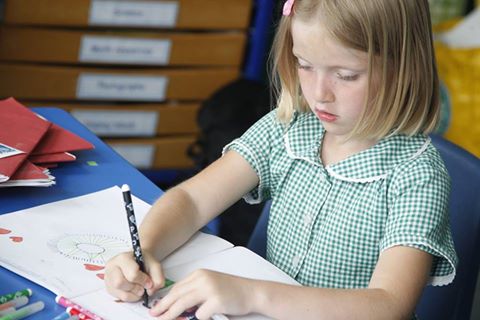
Alison Rees-Edwards, Senior Lecturer on our Early Years programmes explains how the level 4 module on bilingual practice in the early years is brought to life through visits and activities creating a rich student experience…
To enhance students’ understanding of bilingual and multilingual practice, as well as the importance of Welsh culture, first-year students have opportunities to participate in a bilingual workshop with our regular guest speaker, Jên Dafis, a graduate of an Early Years programme at UWTSD. Not only do they learn about the benefits of bilingualism, they are also provided with dozens of practical ideas to support young children in early years’ settings.
In addition, they have opportunities to hear from early years practitioners who have established a successful Welsh-medium day nursery on their family farm. Gwenllian Stephens and Ann Davies, also graduates from a UWTSD Early Years’ programme, share their experiences of setting up a business whilst also studying for their degrees. Our students learn about the challenges of supporting children and their parents when acquiring a second or third language, but also the pride when children begin communicating bilingually. The importance of singing nursery rhymes and storytelling for promoting bilingualism is emphasised in both lectures.
The benefits of bilingualism and multilingualism are also explored outside of lecture rooms. Within the same module, first-year students have opportunities to attend an educational visit to Pentrebach, which is situated in Blaenpennal, Ceredigion. Also known as ‘Sali Mali’s village’, students are given a tour of the cottages which have been transformed to replicate the homes of the characters from the Sali Mali books, and are introduced to Welsh vocabulary and Welsh idioms. The highlight of the visit is a bilingual treasure hunt; another excellent idea for introducing young children to Welsh vocabulary.
Our first-year students also have opportunities to attend a cultural visit to St David’s in Pembrokeshire. We begin with a walk along the coastal path to visit Saint Non’s Chapel and Well, thought to mark the birthplace of Saint David, before visiting the cathedral itself. A module where an appreciation of the Welsh language and Welsh culture is embedded in its content and has been thoroughly enjoyed by both students and staff.


